Becky Sharp (1935)
“She’s hard, she’s selfish — she’ll take advantage of you!”
|
Synopsis: |
|
Genres, Themes, Actors, and Directors:
Response to Peary’s Review: Peary points out that while “in the book she is ruthless”, the “script eliminates her many unforgivable acts”, leaving us to “see only her virtues”. He notes that she possesses “charm, wit, intelligence, resilience, [and] vitality” — and that while she “is selfish”, she “wants the best for her social husband… and best friend [Dee] as well as for herself”, and is “willing to sacrifice her own happiness so that they will be happy”. Peary ultimately argues that while this film “may not be Thackeray”, it’s nonetheless “an enjoyable, if flimsy, period piece, with a likable heroine and a dynamic performance from Hopkins” (who he nominates as one of the Best Actresses of the Year in his Alternate Oscars). Unfortunately, I can’t quite agree with Peary that Becky comes across as a “likable heroine”, and I’m not overly impressed with Hopkins’ performance, in which she seems to indulge her worst tendencies towards shrillness and hyperactivity. With that said, her Becky remains a clever, savvy heroine to be sure, and one can’t help sympathizing with her position in a society which so roundly rejects her from the get-go; meanwhile, her marriage to Mowbray demonstrates that she is capable of true love, even if her designs on men are always and forever calculated to help her maneuver her way out of poverty. As Peary notes, however, the film is really “best known for being the first to use three-color Technicolor process”, and represents a “remarkable job [done] with [early] color experimentation”. He points out that director Rouben Mamoulian (with assistance from DP Ray Rennahan) “decided to use color thematically to express character mood, and added more and more color as the film progresses and the plot thickens”, with “every shot look[ing] color-coordinated”. He notes that his “favorite shot comes [early] in the film”, as “Mowbray and another red-jacketed soldier stand in the foreground in front of a hanging white sheet, through which we can see the black silhouettes of Hopkins and Dee — so within the frame Mamoulian contrasts color with black and white”. He’s right to note that this is “very clever”, as is the film’s most famous sequence taking place “on the eve of Waterloo”, as the guests at a gala ball “leave according to their color group so only the ones in red remained in the ballroom”. Redeeming Qualities and Moments: Must See? Links: |
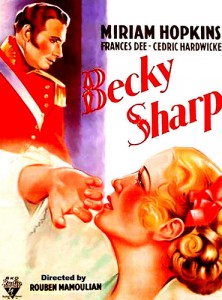
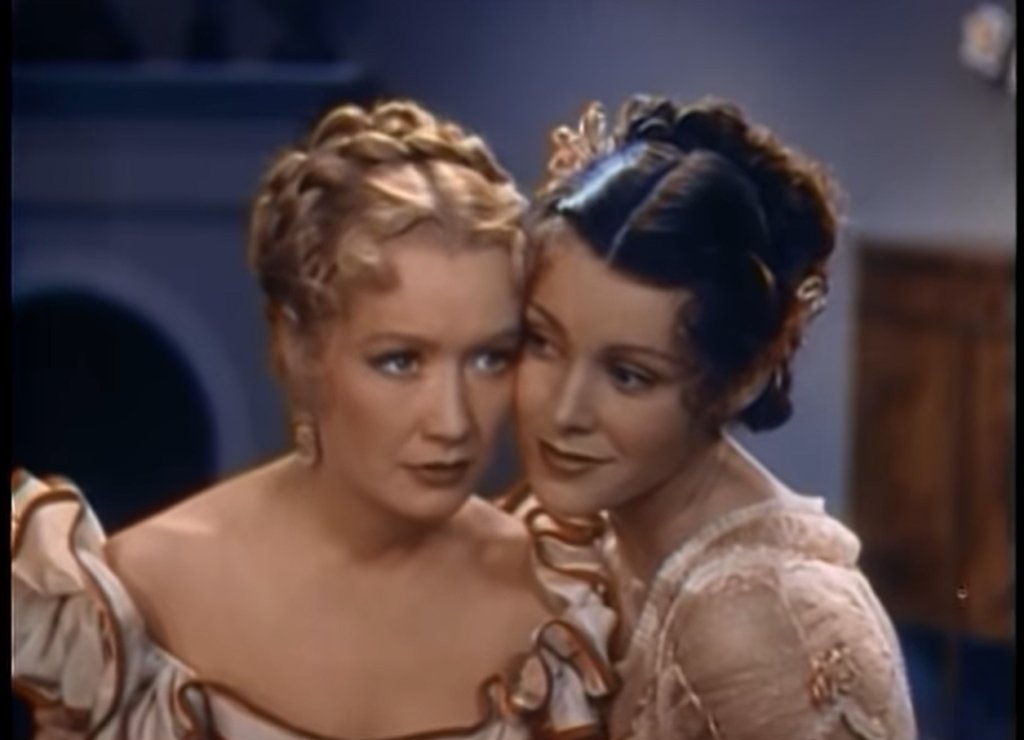
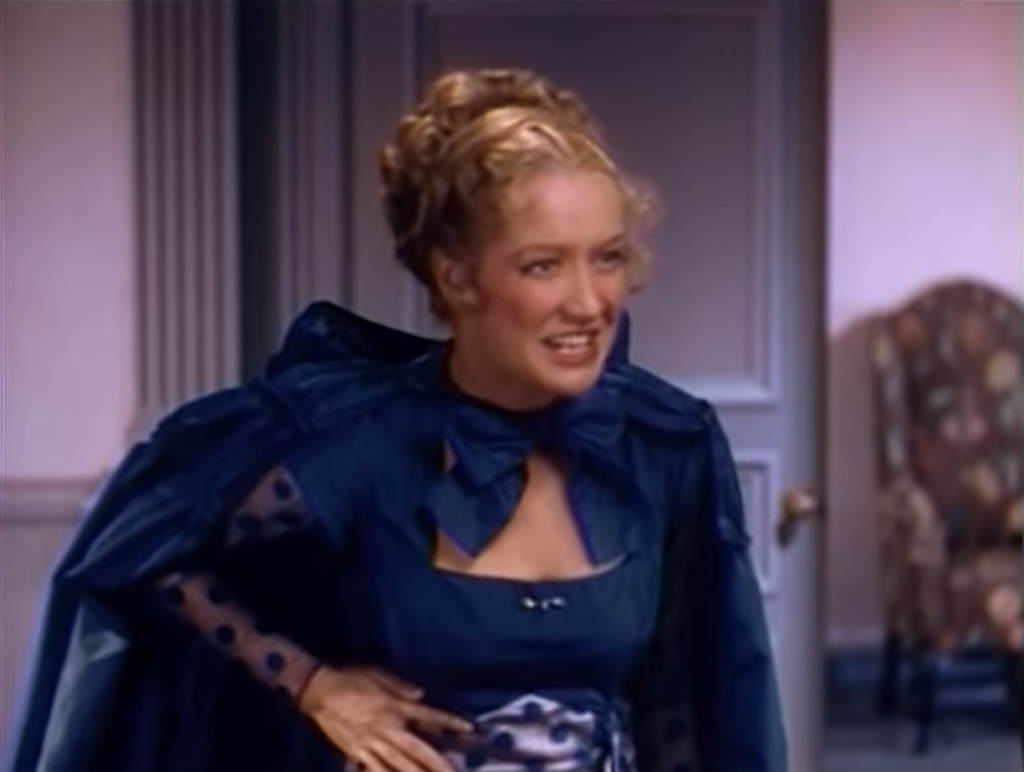
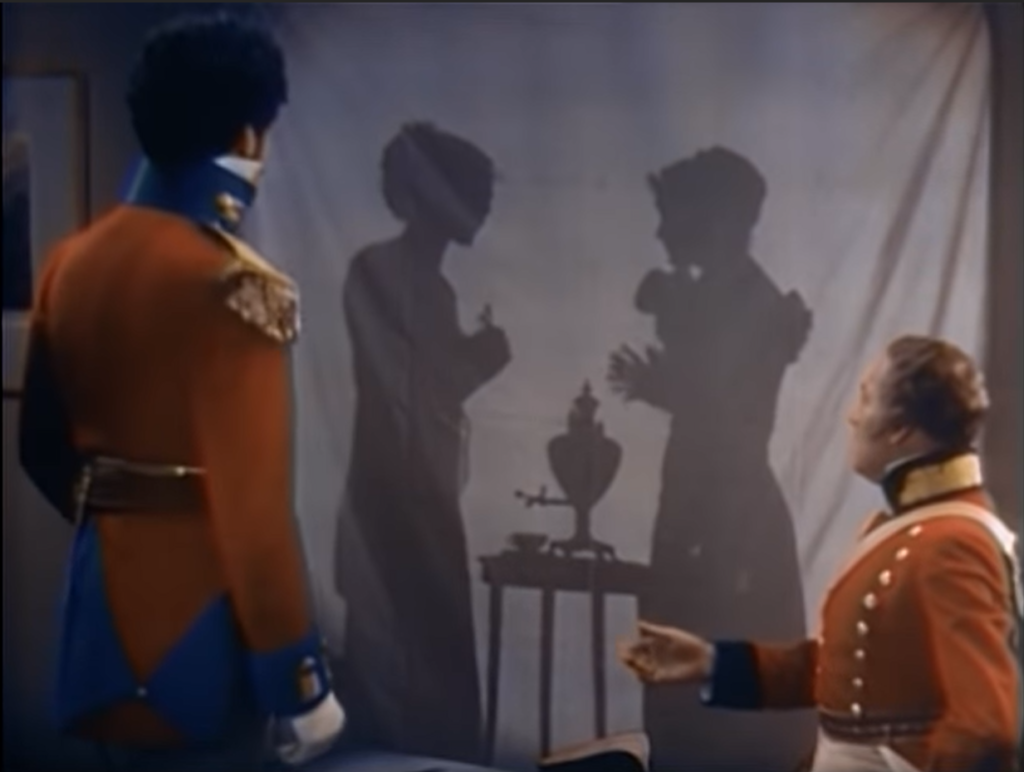
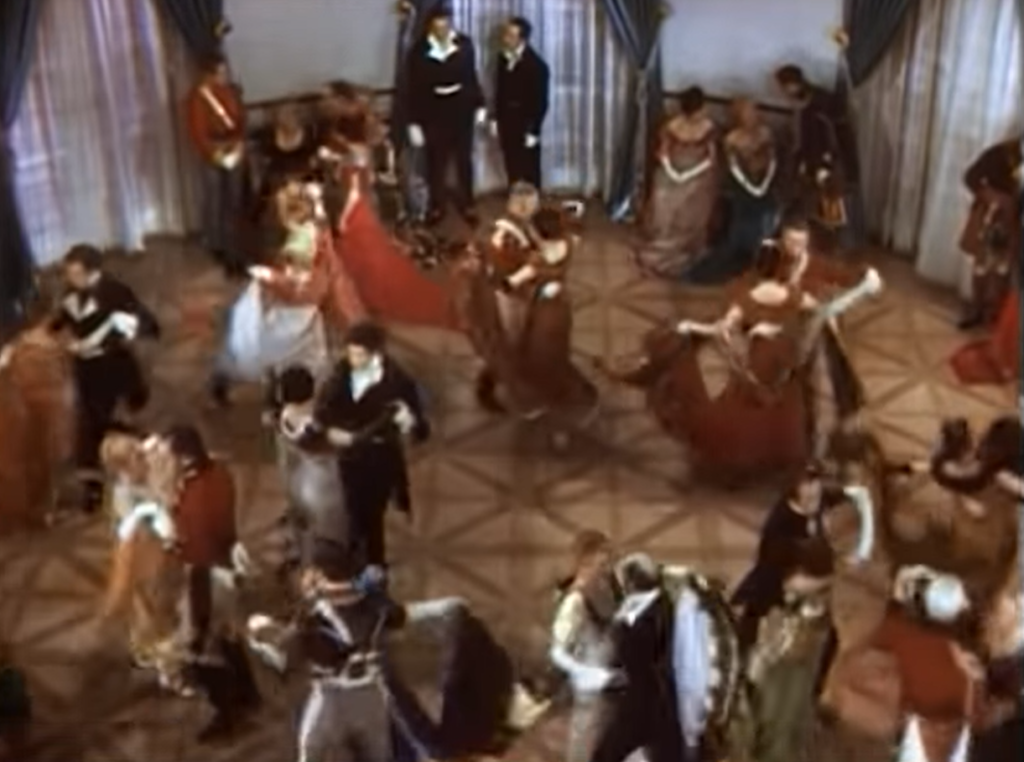
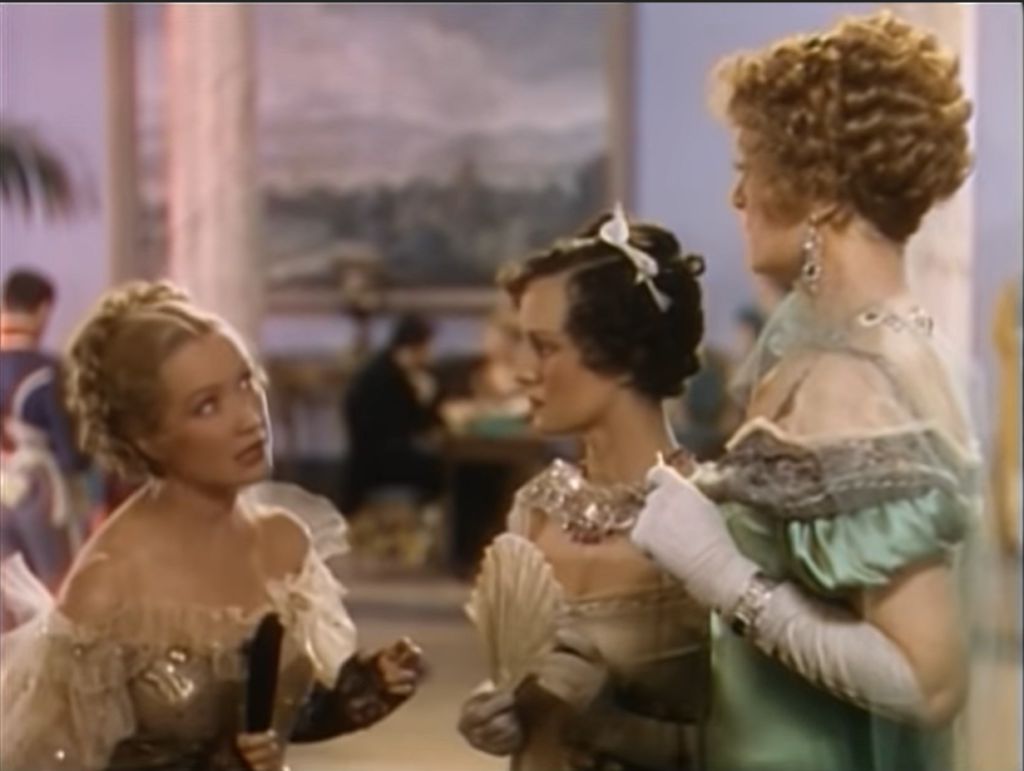
3 thoughts on “Becky Sharp (1935)”
First (and last) viewing.
Its place in technicolor cinema history notwithstanding, this is not a must. What can I say except…ick! Glad *that* one’s over! What a painful watch!
I can only think that Mamoulian was so preoccupied with how the new technology would make everything look (which, as it turns out, is fine – not that it ultimately matters), that he let the film itself slip away from him. I kept waiting for an established tone, but it didn’t seem to settle in. What does seem apparent is a kind of desperation in the production. Some of the actors seem out of control, a few others choose to underplay (perhaps to at least preserve their dignity?).
The single effective sequence is the gala ball: an extended sequence, it relies heavily on effects, music and timing – and it largely succeeds. But it’s surrounded on both sides by a simply dreary film experience.
It’s actually difficult to think of this film as much of anything other than a blur – and that is mainly ‘thanks’ to Hopkins, for almost single-handedly grinding the film to a halt before it’s off the ground. In ‘Trouble in Paradise’ (which I just watched earlier), at least she’s off-screen half the time, so there’s some reprieve (and ‘TIP’ is generally a much better film anyway). But, sadly – very sadly – Hopkins appears to be in almost every frame of ‘Becky Sharp’ – and woe is us! This is without a doubt one of the worst performances I have ever seen in my life!
I basically agree with you re: Hopkins. Isn’t it fascinating, though, how others — i.e. Peary, for instance — view her performances in such a different light? He nominates her as one of the Best Actresses of the Year in both this and Trouble in Paradise (!).
I certainly can’t explain why certain actors who can’t act are embraced. Publicists? Hype? I will usually give actors a lot of leeway – or try to. But a professional has to at least have an actor’s basic instinct. And we have to believe he/she *is* the character being played. In most of Hopkins’ work, all I see is a very irritating Miriam Hopkins.